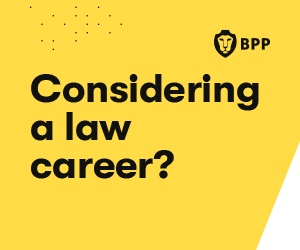
Sep 20, 2019
Written By Anna Vall Navés
Working in the UK
Sep 20, 2019
Written By Anna Vall Navés
If you’re applying for a law job in the UK and you’re not a UK national, the process you’ll have to go through may seem a bit daunting. Below, we give you an overview of everything you need to be aware of before you start working, from visa applications to the work culture at UK law firms.
Applying for a visa
Depending on where you’re from, you might have to apply for a visa before you start work. At the moment, EU, EEA and Swiss citizens don’t need a visa to work in the UK (but you should probably consider applying to the EU settlement scheme). If you’re from outside the EU, you’ll need to apply for a visa—but don’t worry, we’ll lay out the whole application process for you!
There are a variety of visas you can apply to, but odds are you’ll be applying for a general work visa (also known as a Tier 2 visa), which can last up to five years. You can apply for this visa if you’ve been offered a skilled job—for instance, as a trainee solicitor or barrister. If you had a student visa (Tier 4) before, you can switch to a Tier 2 by proving that you got your degree.
To apply for this visa, you’ll need a couple of things. First of all, you need to be sponsored. Generally, your sponsor will be your employer; so if you’ve been offered a job, you probably won’t have to worry much about this. You’ll also need to prove your knowledge of English and provide a couple documents, including your passport and a recent bank statement.
You can apply at most three months before your job start date, and it usually won’t take more than three weeks for you to get a reply.
Getting your National Insurance number
When you work in the UK, you need a National Insurance (NI) number to be able to work, pay your taxes and access benefits such as state pensions or student loans.
If you’re under a Tier 2 visa, it’s likely that you already have your NI number; it’s probably printed somewhere on the back of your biometric residence permit. If you’re an EU citizen and are here without a visa, you’ll need to apply from within the UK—but you can work as soon as you’ve applied!
Your rights as a worker in the UK
As a full-time employee in the UK, you’ll have the same rights as other workers—everything from 28 days of paid holiday to statutory sick pay.
The only difference if you’re working under a Tier 2 visa is that your employee will often be your sponsor—so if you’re fired, you might not be able to stay in the UK unless you find another sponsor. This hopefully won’t be an issue. Even if it is, you’ll have the same protections against dismissal as any UK citizen.
Work culture at UK law firms
Moving to a different country can be both incredibly exciting and challenging at times. It can take a while to adapt to a new culture, and differences in work culture might be particularly surprising.
It’s very difficult to offer guidance or generalise on what to expect, because different workplaces will often offer very different work environments. In law, it’s often going to depend on the specific law firm you choose.
If you’re working in a big City firm, it’s likely that your workplace will be competitive and fast-paced. You might have to stay on top of things to ensure your work-life balance is a healthy one, but on the flipside, you’ll never be bored. Regional firms, on the other hand, tend to be smaller and can be more relaxed—but you may be able to get more responsibility earlier on.
The general working day runs from 9am to 5pm, but working in the evenings and weekends isn’t uncommon. You might find yourself preparing for a Monday morning in court over the weekend, or perhaps visiting a client at home if you’re working in criminal law. Something else to consider is that UK law firms increasingly offer more flexible working, so this rule of thumb might not always apply.
As a general tip, try to be flexible if you come across something you’re not quite used to—working in a new country is a great way to learn about its culture and can be an extremely stimulating experience. If you keep your mind open and ask questions, you’ll never be in the wrong!
If you're currently on the hunt for a Training Contract or Vacation Scheme, head over to our Law Jobs section.
For international students

